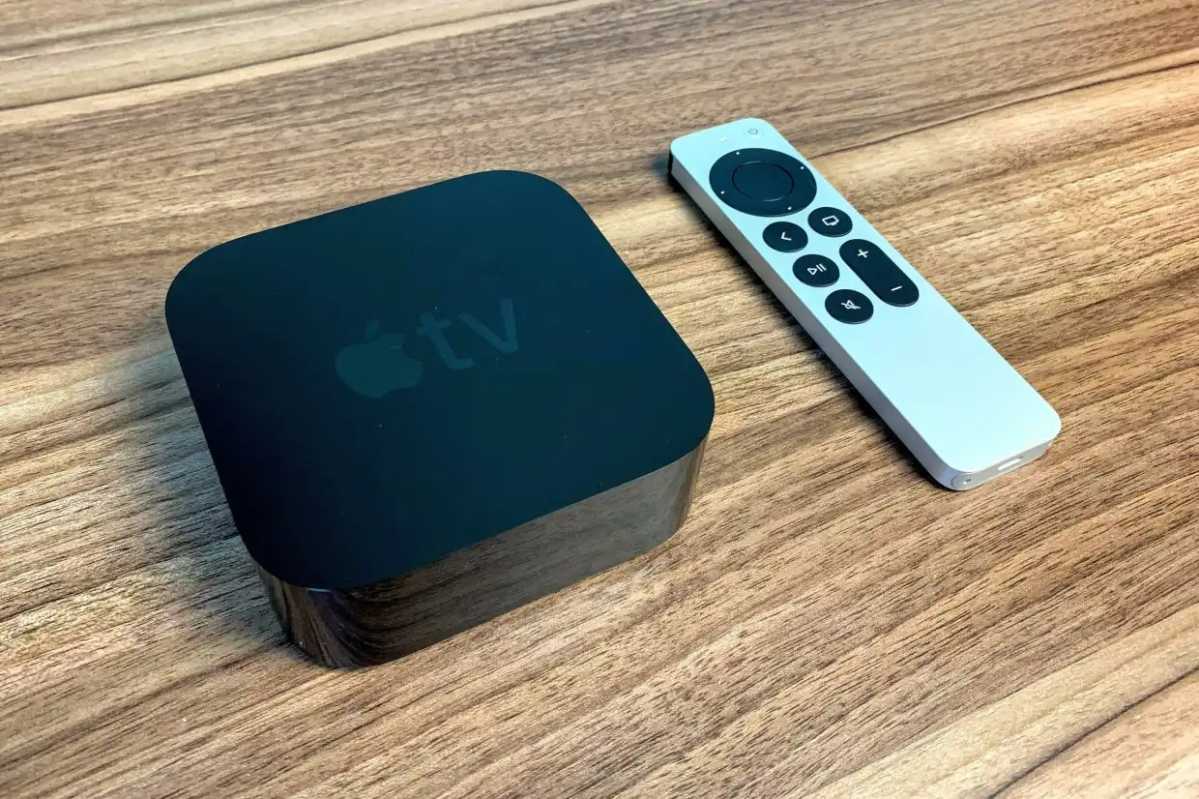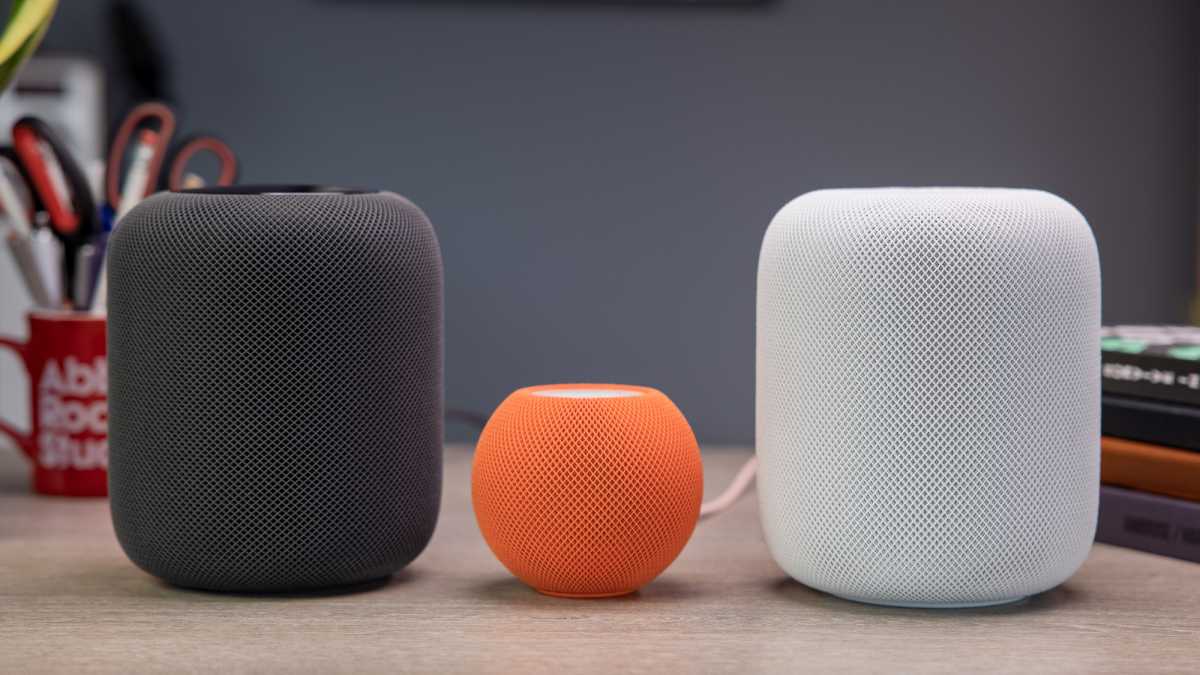
If you haven’t noticed, Apple Intelligence is here. But it would be hard not to notice: Apple is marketing its new collection of AI features everywhere it can, from television ads to its website and every product announcement it’s made in the past two months. (Every video announcement Apple released last week–iMac, Mac miniAnd MacBook Pro–contained an original, extended Apple Intelligence segment.)
But to say that Apple has gone all-in on Apple Intelligence would be a mistake rather WHERE. Yes, the Big Three are covered: iPhone, iPad and Mac. But Apple makes many more devices than just these three! This year, the company will understandably focus on getting as many AI features up and running on the Big Three as possible. But sometime soon, probably next year, Apple will have to roll out a strategy regarding everything else in its product lineup.
How are you going to achieve that?
AppleTV
The current Apple TV is powered by the A15 bionic chip and 3 or 4GB of RAM. That’s not enough at all, but it’s not unreasonable to imagine that a future Apple TV could be upgraded to use the A17 Pro chip from the iPad mini or the A18 chip from the iPhone 16 and 16 Plus. And while increasing RAM to 8GB will cost, Apple seems to have finally accepted that in the Apple Intelligence era, all our devices will need more memory.
So it seems quite easy for Apple to build an Apple TV box that is capable of Apple Intelligence. The question is… what does that mean?
Clearly, an improved Siri will be a winner on Apple TV. Siri in iOS 18 is still a work in progress, with an improved understanding of verbal commands, but not much better in terms of results. Still, Apple says these improvements will happen between now and the middle of next year. Every Apple TV comes with a remote control with a Siri button; it would be satisfying to be able to navigate the thing more easily with a faster, more responsive, and more intelligent Siri.
One of Siri’s upcoming new features is the ability to see what’s on the screen and respond to it. This could be a great way to ask questions like, “What movies has that guy with the hat been in?” and actually get a good answer. And of course, if Siri’s future ability to control individual apps were applied to the Apple TV, it could be easier to tell apps to open and play the right episode of the show you’re watching.
Apple TV also comes with a version of the Photos app, which hasn’t really been updated in the last year. But if it gained some of the search and video generation capabilities of the Photos app on the Big Three, you could generate video slideshows from your photo libraries from your couch by speaking into the remote. Or at least instantly view the results of photo searches.

Current Apple TV 4K hardware needs to be upgraded to support Apple Intelligence.
Jared Newman/Foundry
I’m not a big fan of notifications on the Apple TV, but I do use them occasionally. I think it would be cool to use Apple Intelligence to be aware of alerts happening on your other devices and use the new Reduce Interruptions focus mode to decide if it’s worth showing them to you while watching TV.
Finally, the Apple TV hardware is also a hub in Apple’s smart home strategy. I could see a souped-up Apple TV that uses Apple Intelligence to be a better coordinator of the devices in your home. Maybe we can generate complete home automation via voice commands? It’s worth considering.
Apple Watch
It’s harder to imagine that the Apple Watch will soon have the horsepower to run the full version of Apple Intelligence. It simply requires too much processing power and memory, and the tiny Apple Watch and its small battery won’t be able to do that for a while.
But that’s fine. We would like to see the Apple Watch and watchOS become better clients for Apple Intelligence running on the iPhone connected to the watch. Last year, Apple upgraded the Apple Watch to handle Siri commands on the device, which was a huge boost. The next step is to update watchOS to determine if a request can be better handled by Apple Intelligence and then pass those requests on to a properly smart device, be it the iPhone or even an Apple server.
What is the use case for Apple Intelligence on Apple Watch? Really, I think it’s all based on Siri, namely the ability to get better responses on your wrist. But I’m also interested in the idea that as our iPhones get smarter, the Apple Watch can tap into the power of individual iPhone apps without having to run those apps itself. Imagine asking your Apple Watch to pull information from an iPhone app, or even merge two apps, to arrive at a result. If you can leave your phone in your pocket (or even leave it at home) and still have it work, that would be pretty great.
HomePods and more
I imagine that like the Apple TV, Apple will build a new generation of HomePods that are well equipped for Apple Intelligence, as well as additional HomePod-like products like a rumored HomePod with a screen. Again, these are products powered by Siri, so if Siri were much more intelligent and gave it the power to summarize information across the web, this would make things a lot better. A device that knows it’s just a speaker and has no display and can respond with an answer that requires summary and interpretation (including images!) would be a major upgrade over today’s rather dumb HomePods.
Apple Intelligence should also be able to create good Apple Music playlists in an instant, right? Not just on the HomePod, but everywhere. It should be smart enough that I can use my voice to rearrange playlists, remove items from the queue and more.
And like these other devices, HomePods need to become better stewards of my entire ecosystem of devices. If I have an important alert on an iPhone, my devices need to be able to understand that the iPhone is not with me and that I am listening to something in the kitchen, and let me know that the important alert has arrived. I know, all the data being processed on my devices is part of the appeal of Apple Intelligence, but once the processing happens, I’d like my devices to talk to each other and do the right thing to get me important information, wherever whatsoever. I am.

Apple Intelligence could cause Apple to renew its HomePod range.
Dominik Tomaszewski / Foundry
AirPods and the future
Finally AirPods! They’re small, I know, and unlikely to be anything other than a recipient of Siri calls from other devices. And yet… some reports suggest that Apple could build cameras into future AirPods models. One possibility is that AirPods could become the eyes for an iPhone that’s otherwise in your pocket, sending images to Apple Intelligence for a version of the new Visual Intelligence feature premiering in iOS 18.2. In fact, if Apple made glasses with cameras and built-in AirPods in the style of Meta’s Ray-Ban specs, your iPhone could also use them as eyes and ears when it’s in your pocket.
The future of Apple Intelligence is largely unwritten. There is a lot more for Apple to do with the Big Three product lines alone. But he can’t leave his smaller appliances and accessories behind. They will be important tools to provide data to Apple Intelligence and extend the intelligence of Apple’s platforms to the rest of our lives. I hope we’ll get our first look at that future sometime next year, after Apple lays a stronger foundation with all its upcoming iOS 18 and macOS 15 releases.